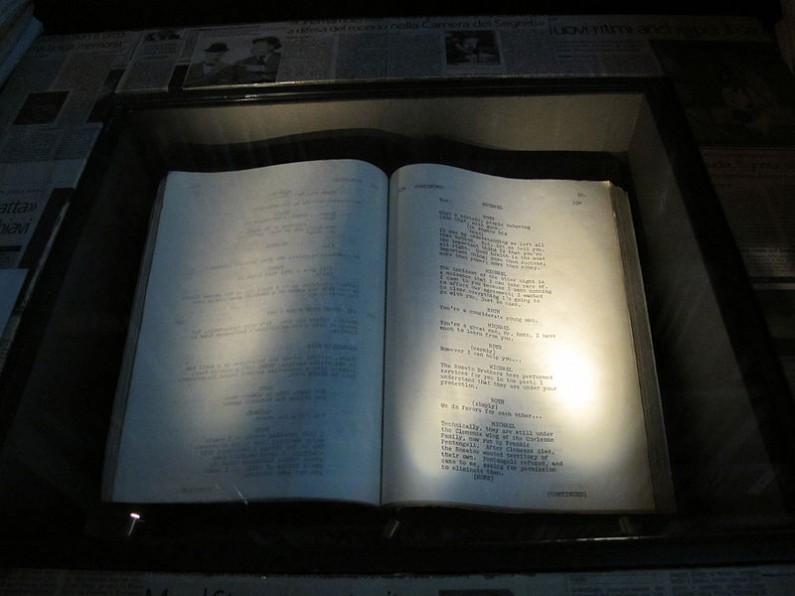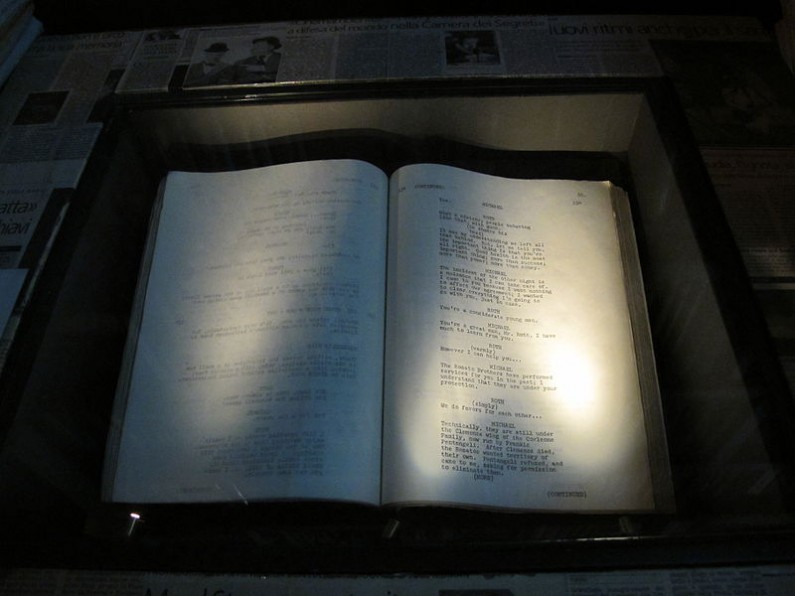

So you want to be a screenwriter. How many times have you watched a bad movie that some studio paid millions to produce, and thought, “I could write better than that! How hard could it be?” So, what is the secret to writing a ninety to a hundred page script that Hollywood wants? Well, before you embark on that hundred-page journey, you have to ask yourself… Why do people go to the movies? What drives them to spend $10 to sit motionless in a chair and stare for a couple of hours? And, more importantly, what keeps them riveted to their seats? It’s not the sticky substance that the previous movie-goer spilled on the chair.
I don’t know about you, but if I’m not hooked by the first ten minutes of a movie, I’ll probably walk out and demand my money back. If the story doesn’t intrigue me right off the bat, it’s dead in the water. There must be a dramatic incident that sets the story in motion, and makes me want to see what happens next. In short, it’s got to catch my attention! Okay, then… Just how is that done?
Let’s look at the hero for a moment. Why should I care about her? Well, in addition to that inciting incident that drives the story forward, I have to care about the characters, especially the protagonist, the main character or hero. She’s got to have an urgent problem or dilemma that she’s forced to confront or face the horrible consequences. Did someone mistreat her? Is someone she loves in trouble? Did she lose her job or her boyfriend, or did she just discover she’s got a terminal disease? Is a bomb going to go off in the White House unless she springs to action? If I can relate to her conflict, I want to know what she’s going to do about? Now, I’m starting to care.
Here’s where the story promises an interesting ride. Now, I’m fully engaged, totally invested in the hero’s journey. I have to stick around to discover the answer to the question, “Will the hero get what she wants in the end, or will someone or something stop her?” Hope and fear should play with my emotions! To hold my interest, the hero has to get beaten at every turn, but still never lose hope in reaching her goal. The villain, or the antagonist will do everything in his power to prevent her from getting what she wants!
Aha! The villain! Who is he? What does he want? The villain must be a powerful threat, always trying to trip up or destroy the hero. The villain has his own evil agenda. He wants to kill the hero, or her loved ones, or he wants to control or destroy the world? He’s greedy, violent, paranoid, a megalomaniac and probably has some tragic flaw or wound that eventually spells his downfall. In any case, the villain must not be a cliché. He must be unique. He must be a character that would attract a major actor.
The story and characters are a vital part of a screenplay, but let’s not forget the dialogue. Here’s the writer’s chance to show off the character’s unique voice. Every word a character utters must reveal something about his or her character. It can reveal deeper meanings, old wounds, weaknesses or hidden motives. But, here’s the danger. Unlike novel writing, a screenwriter must avoid exposition at all cost, and follow the unwritten screenwriter’s code: “Show it, don’t say it!” In other words, don’t explain the story. Show it in the actions and the dialogue. If a writer can do that, the characters and story will spring to life on the screen!
And, last of all, a screenplay should not be predictable. Keep your audience guessing, promise them an earth-shaking finale, but don’t deliver what they expect. Surprise them! Create twists and turns, and save the biggest most surprising twist for the end. Then you’ll have a truly great screenplay! Now, I ask you… How hard could it be?
By: Bonnie Maffei
Image By: SA 3.0 Licence


